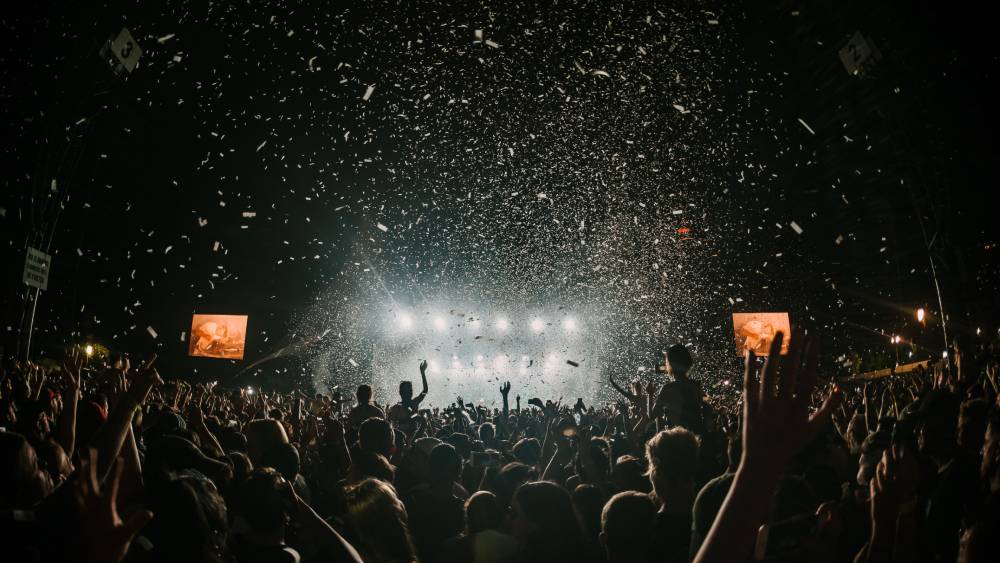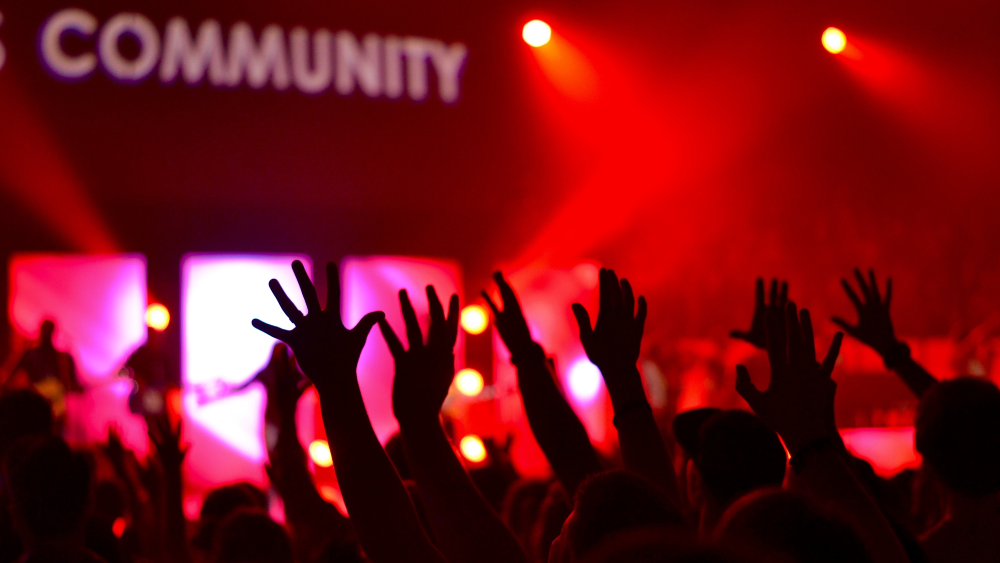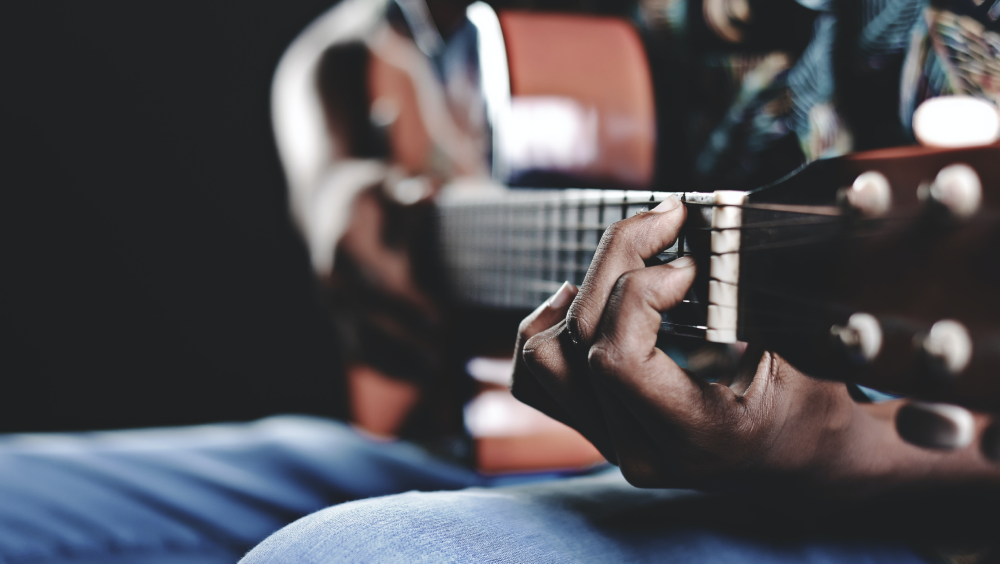As part of Members’ Day London, which saw the PRS community come together to network and hear from top industry figures, Council President Michelle Escoffery chatted with Lorna Clark, BBC Director of Music about everything from her work ethic to the BBC’s current and future role in the UK music industry.
Lorna has over 30 years broadcasting experience under her belt and is responsible for Radio 1, Radio 2, 6 Music, Radio 1Xtra and Asian Network. Starting at BBC Radio Cornwall in 1985 as a news reporter, she joined Kiss 100 FM in 1990 as Programme Director when it first began broadcasting legally after years as a pirate station.
Following numerous roles at BBC Television, Lorna returned to radio in 2010 as Network Manager for Radio 2, 6 Music and Asian Network before becoming Head of Production for Radio 2 and 6 Music in 2017 and Controller of Pop in 2019. Most recently, Lorna was appointed BBC Director of Music.
M Mag listens in on their chat to find out more.
As one of the few senior women in the industry, can you tell us about the key challenges and wins from your time at Kiss in the 90s to now at the BBC?
Kiss was a fantastic, passionate place. I learnt to go with my gut and that you don’t have to have all the answers, but you do have to have good intentions. Surround yourself with good people and try and get yourself in a safe place where you can take risks.
I was one of the few women who were Programme Directors and I had to work extra hard to be heard. My CV is the proof. I’m not a genius, I just work very hard. That came from Kiss because at the time London didn’t have many legal radio stations. For advertisers it was very much, how are you going to play this music and generate money? You had to be bolshy to say, we believe in this and it’s going to work. We exceeded all expectations, turning over £10 million in the first year. What it taught me was to be true to yourself and if you’re in it for the music then that comes first and the rest will follow.
Tell us about your new role and what the shift to a portfolio approach will mean for audiences?
It’s not that big a shift. The intention is to keep the audience within the BBC garden so if they enter via their favourite radio station, they’re then teased with other content, so they stay for longer. The portfolio approach is that I commission documentaries for BBC Two, Radio 2 and BBC Sounds and everything, the archive and the new, will be available in a digital space on iPlayer.
How are the BBC contributing to support grassroots live music venues?
That’s super important for us. BBC Introducing means music makers can upload their music to be listened to. We have a network of 38 radio stations across the UK and they play local new and emerging artists, this proved massively popular during the pandemic. For 2020, BBC Introducing had 100, 000 tracks alone and to date we have 284,000 registered artists. It’s working on a grassroots level but it's also generating stars of the future. People like Ed Sheeran, Lil Simz, Arlo Parks, have all been supported by BBC Introducing.
Your friends, family and immediate community can know you’re good but it’s about getting to the next level. The BBC can and does play a massive role in this. Often if you’re used to playing a circuit of very small venues, the next step is a broadcast gig which is quite different. The BBC can help prepare artists, like Stormzy, for when they stride across the stage headlining Glastonbury because his relationship with the BBC goes back to busting his rhymes on 1Extra. The BBC are there the whole time.
How does the BBC leverage their digital platforms, including on-demand and podcasts?
Our bet for the future in the digital space is BBC Sounds. My job is to transition as much of linear listenership services – Radio 1 and 2 alone have 25 million listeners a week – into the digital space. Radio is not dead. The official radio figures that came out last week showed a healthy listening audience and over the past few years, the commercial radio sector has been growing. That’s good because the BBC isn’t a threat to commercial radio, global streaming is. Spotify and Apple use radio terms more and more to describe what they’re doing and it’s because radio is a big deal.
I’m not interested in being a Spotify mark two, any leader in broadcast or digital knows it’s too late for that. I’m funded by the public so what I want to do is mirror the rich experience we create in linear, in digital. We tell artist’s stories, we follow their whole journey, we love specialists, we play more tracks than anyone else. Our main pop stations: Radio 1, 2, 6, 1Extra play 10,000 different songs across the year whereas the top 11 commercial play 2,700 and that’s because repeats and playing the hits works. The BBC’s job is to find the music and hand it to the industry, not always be worried about whether it’s a hit or not. That’s why we invest so much in new and emerging.
Are the BBC planning to compete with streaming services?
No. We’re different. The BBC’s job in music is to build fandom and passion on a local, national or specialist level. We’re very good at building artist’s stories, you spot someone on BBC Introducing, it ends up on the Radio 1 playlist and then you’ve got the story of how they developed which helps the appreciation of the song. Streaming is too thin a format, we want to do more and be complimentary across platforms. It’s about pulling the levers that we’ve got because the money we receive from the public is such a privilege (which certain ministers would like to take away).
How do you see the next chapter unfolding for the BBC?
The app is still in its infancy, so the next phase is about driving audiences to it. I’m optimistic about doing this because on a people level, when I look at my talented team, it’s very different to when I started. I have a man called Ahmed Hussain running the Asian Network (which was not always the case believe it or not) and a black man, who’s never worked in radio before, running the black music station 1Extra. He was hired because of his passion and potential and he’s doing a great job, so it was worth taking the chance. I learn from my team all the time and in the future, I hope the fruits of the work we’re doing now will be meaningful. For me that means moving radio stations to Birmingham and teams to Salford. It’s a big commitment and will be complete by 2024. This means losing people. I’m not dragging people from London to Birmingham because I need an authentic voice, I need new people. If you want a career in music at the BBC, then you shouldn’t have to move to London.
How do you spot potential in people?
By taking away the risk of failure, spreading yourself wide and thinking sideways. If you hire five new heads of radio stations (which is what I did during the pandemic) you can afford to take a risk with one. I’ll look at the matrix of the team and think, what’s missing? Who can complement and learn from who? Spotting potential is about being open.
When you’re spinning so many plates how do you take care of yourself?
I’m very hot on self-care. I don’t believe in stress for stress sake. I’ve been pretty relaxed about ambition but that doesn’t mean I’m lazy, if something’s on fire I will walk towards it and deal with it. In 2019, I took six months unpaid leave from the BBC after decades of working because I was tired. I’ll never be that person who sits in the corner, wearing a cardigan, rocking and being unhappy. I was on the verge of buying the cardigan, so I thought, leave and go do something else! I took the break and it’s the best thing I’ve ever done. Since then, I’ve had two jobs and I don’t think that’s luck… when your body or your brain says, ‘I’m tired’, you have to listen to it.
What’s the biggest thing you’ve learnt about yourself?
That I’m resilient. I bought a wetsuit because I wanted to learn sailing. Black people don’t really sail, it’s not a thing, but I thought why can’t I? Maybe the reason I enjoy doing challenging things is I like the need to learn something different. It doesn’t always work; I was pretty rubbish at sailing, but the point is I always wanted to get in the wetsuit and try. There’s something about learning what your limits are and doing dramatic things to break them.
What’s next for Lorna Clarke?
I need to work out how to do this job! I’m an absolute fan of the BBC and I wouldn’t still be here if I didn’t believe in public service and the idea that this country can gather a tax from everyone and put it into, in my case, music services that feed back to musicians and writers.
Watch Lorna and Michelle’s conversation on the PRS Members’ Day London webpage.





